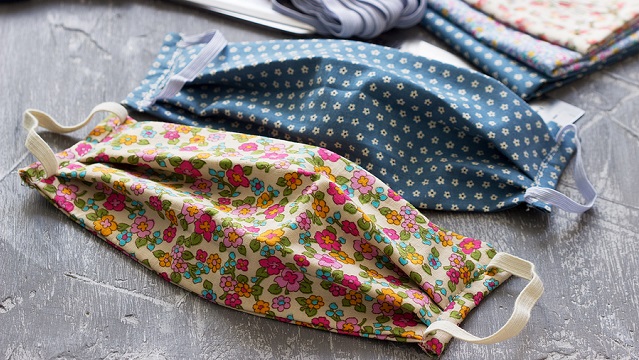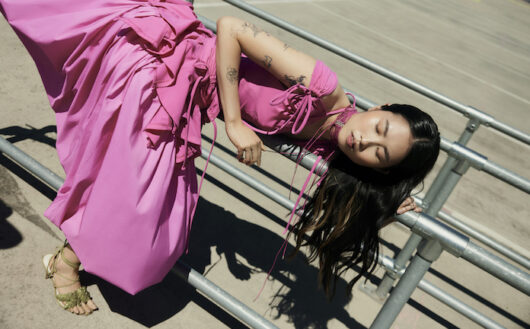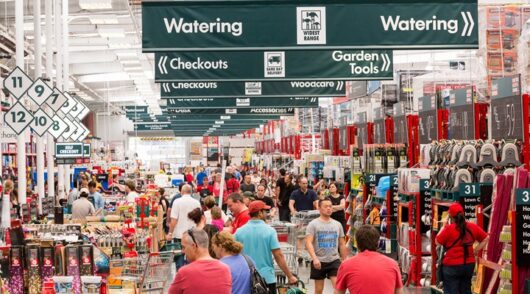
As people in Melbourne and Mitchell Shire prepare for it to become mandatory to wear face masks in public from 11:59pm today, two key issues are emerging that have particular relevance for the retail sector.
One is around the enforcement of mask-wearing in shopping centres and stores; the other is around the large number of retailers selling reusable cloth masks that do not meet health department guidelines.
On Tuesday, the Shop, Distributive and Allied Employees’ Association (SDA) said shoppers should not be allowed into stores without masks but said retail staff should not have to be the ones to enforce this.
“If a government announces that masks are mandatory, the police should enforce the law, to do otherwise puts the health and safety of retail workers and shoppers at risk as well as sending a mixed message to the community,” Gerard Dwyer, national secretary of the SDA said in a statement.
Myer, David Jones, the Country Road Group, Kmart, Target, Officeworks and Bunnings have all said they will not allow customers to enter stores in metropolitan Melbourne and Mitchell Shire if they’re not wearing masks.
Harvey Norman said it will require mask-wearing except for people with medical issues and children under 12, and Woolworths said it will not enforce mask-wearing, because of the range of personal circumstances where masks are not recommended, according to The Age and The Sydney Morning Herald.
The retailers did not say how they plan to enforce this policy, but the SDA is urging shopping centre owners to take the lead.
“It would be of great assistance if shoppers were not permitted to enter shopping centres without a mask in line with the Retail Recovery Protocol agreed by the SDA, the National Retail Association, the Australian Retailers Association, the Shopping Centre Council and the Pharmacy Guild on May 1,” Dwyer said.
Many cloth masks fall short of health recommendations
When it comes to wearing a mask, the Department of Health and Human Services (DHHS) in Victoria has said that any face covering – including a scarf or bandanna – is better than nothing, but if people use a reusable cloth mask, they should choose one that has three layers of a mix of breathable fabrics.
In a guide to making your own cloth mask, the health department also recommended using a water resistant fabric like polyester for the outer layer. This is because the coronavirus is carried in water droplets from coughs and sneezes.
It’s concerning, therefore, that many cloth masks on the market do not meet these criteria. Many businesses are selling reusable masks that only have two layers of fabric, and often, both layers of fabric are 100 per cent cotton, which is not water resistant.
Some two-layer masks do include a pocket for users to insert a disposable filter that can block the virus if the right size filter is used, but many don’t.
Businesses selling these masks typically advertise them as “fashion masks” and say they are not designed to be medical face masks. Many such masks are already sold out, suggesting that consumers either don’t know the masks do not meet the health department’s guidelines or don’t care.
One cloth mask that does meet DHHS guidelines is made and sold by The Social Studio, a social enterprise in Melbourne that employs young people with a migrant or refugee background in clothing manufacturing and design.
Like many retailers, the brand recently pivoted to making cloth face masks, but unlike others, its masks are made out of three layers of fabric with a polyester outer layer.
“Making masks that met the DHHS’s strict requirements was essential for us. We may be a fashion social enterprise but we see this as a health issue,” Aleksandra Nedeljkovic, The Social Studio COO, told Inside Retail.
The organisation has sold over 5000 cloth masks in the past week alone, and generally runs out of stock less than 30 minutes after it adds new inventory each day.
Nedeljkovic said the demand has been “overwhelming”.
“It has been so encouraging that people are so willing to adopt face masks in order to help keep each other safe. The move to compulsory masks has not necessarily increased demand but rather the urgency around getting masks,” she said.
Iconic Aussie underwear brand Bonds has also taken steps to ensure the face masks it sells meet health and safety standards.
While its “Bonds Protective Comfy Mask” only features two layers of fabric, the outer layer has been treated with HeiQ ViroBlock to enhance the filtration performance of the mask. This mask is on the Australian Register of Therapeutic Goods, which means the brand had to prove that the treatment is actually effective.
A spokesperson for Bonds told Inside Retail that the brand globally supplies a three-layer cotton mask with a focus on filtration. The masks are not registered as Class 1 medical devices, but still meet filtration requirements.
“All of our products follow strict quality procedures and masks are no different,” the spokesperson said.






